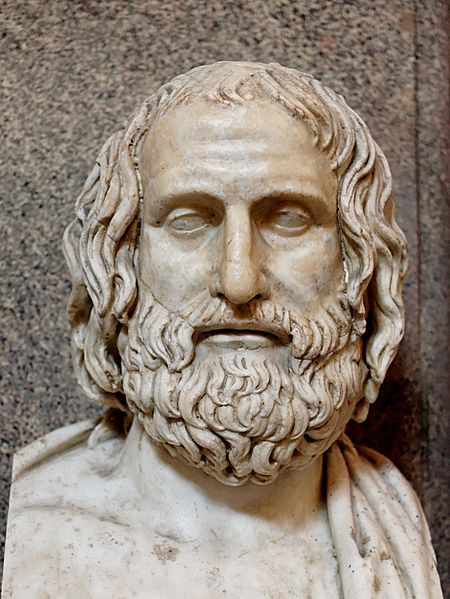The Cyclops Euripides - When Odysseus arrives he meets Silenus and offers to trade wine for food. Being a servant of Dionysus, Silenus cannot resist obtaining the wine despite the fact that the food is not his to trade. The Cyclops soon arrives and Silenus is quick to accuse Odysseus of stealing the food, swearing to many gods and the Satyrs' lives (who are standing right beside him) that he is telling the truth. His son, a younger and more modern Satyr, tries to tell the truth to the Cyclops in an attempt to help Odysseus. After an argument, the Cyclops brings Odysseus and his crew inside his cave and eat some of them.
Dieser Download kann aus rechtlichen Gründen nur mit Rechnungsadresse in A, B, BG, CY, CZ, D, DK, EW, E, FIN, F, GR, H, IRL, I, LT, L, LR, M, NL, PL, P, R, S, SLO, SK ausgeliefert werden.










